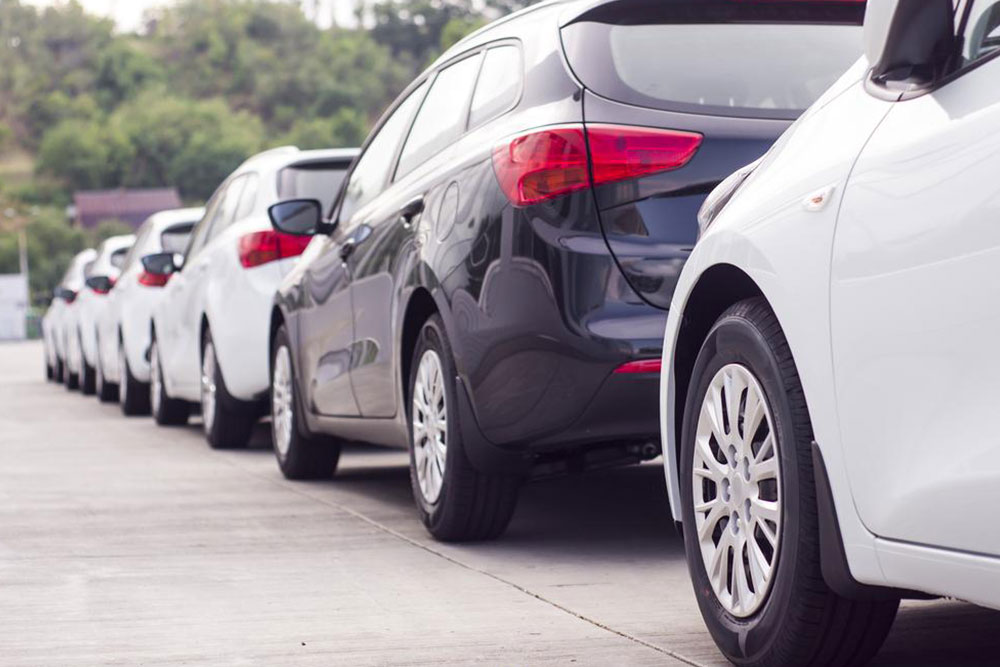Comprehensive Guide to Buying Repossessed Vehicles: Opportunities and Tips
Discover the ins and outs of purchasing repossessed vehicles, including how they are acquired, auction tips, and what to consider for a successful purchase. Repossessed cars offer affordable options for buyers seeking quality used vehicles. Learn how to spot, evaluate, and bid confidently at auctions, making the best deals available in the market today.

Comprehensive Guide to Buying Repossessed Vehicles: Opportunities and Tips
If you're in the market for a vehicle and are seeking ways to purchase a car at a significantly lower price, exploring the world of repossessed vehicles might be the perfect solution. Repossessed cars, or 'repo cars,' present a unique opportunity for budget-conscious buyers and automotive enthusiasts alike to acquire quality vehicles at a fraction of their original market value. This comprehensive guide aims to shed light on what repossessed vehicles are, how they are obtained, and practical tips for purchasing them effectively.
Repossessed vehicles, commonly known as repo cars, are automobiles that have been repossessed by lenders due to the owner's failure to meet loan repayment obligations. When a car loan borrower defaults or misses payments, the lender—that is, banks, financial institutions, or specialized lending companies—exercise their legal rights to repossess the vehicle, which then becomes available for sale through various channels.
Understanding the legal and financial framework surrounding repossessed cars is crucial for prospective buyers. Typically, these vehicles are collateral for auto loans, meaning the owner signs an agreement whereby the vehicle serves as security for the borrowed money. When the borrower fails to make scheduled payments over a specified period, the lender has the legal right to repossess the vehicle. It’s important to differentiate repossessed vehicles from those seized by law enforcement, which are subject to different legal processes and potential forfeiture.
Once a vehicle has been repossessed, lenders usually aim to minimize holding costs such as storage and maintenance by promptly selling the vehicle. Most repossessed vehicles are sold through public or dealer-only auctions. These auctions serve as a primary avenue for disbursing repossessed cars quickly and efficiently, offering buyers the chance to purchase high-quality vehicles at significantly reduced prices.
Auctions are the most common platform for selling repo cars, with vehicles presented to the highest bidder in a dynamic bidding environment. Attending an auction can seem intimidating at first, but it offers some of the best opportunities to buy cars at a discount—sometimes at prices well below retail value. The inventory often includes late-model vehicles with relatively low mileage, making them attractive options for first-time buyers, used car dealers, or those seeking a reliable, affordable vehicle.
Many auction houses are accessible to the general public, enabling private buyers to participate alongside car dealers. It's essential for prospective bidders to research current auction schedules, registration requirements, and bidding procedures. Some auctions are held physically in specific locations, while an increasing number of auctions have moved online, allowing remote participation from anywhere with an internet connection. Online repossessed car auctions are particularly convenient and transparent, providing detailed vehicle histories, inspection reports, and pictures to help buyers make informed decisions.
When considering purchasing a repossessed vehicle, there are several important tips to keep in mind. Firstly, always thoroughly inspect the vehicle or have a trusted mechanic evaluate its condition before bidding. Some repo cars, due to their nature, may have undergone previous damage or neglect, though many are virtually indistinguishable from regular used cars. Secondly, review the vehicle’s history report—such as Carfax—to check for prior accidents, title issues, or other concerns. Lastly, establish a firm budget and stick to it, understanding that additional costs such as auction fees, taxes, and potential repair expenses may apply.
Buying repossessed vehicles can be a rewarding experience if approached thoughtfully. These vehicles often come with less price premium, providing a budget-friendly alternative to new or certified pre-owned cars. Moreover, for those willing to do a little research and inspection, repossessed cars can serve as a reliable daily driver or a project vehicle for automotive enthusiasts.
In conclusion, the market for repossessed vehicles offers an excellent opportunity for savvy buyers to secure quality cars at competitive prices. Understanding the process, attending reputable auctions, and conducting thorough inspections are key steps that can help you make the most of this buying avenue. Whether you are a first-time buyer or an experienced car trader, exploring the repossessed vehicle market might just lead you to your next affordable and dependable car.





